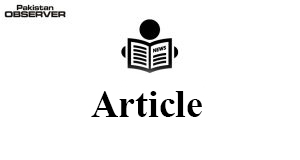M Abbas Hassan
ON 11 July 2020 the New York Times ran a story titled, “Defying US’, China and Iran Near Trade and Military Partnership”. The report has caused stirs all across the world especially in the US and India. Although rumors were in circulation since fall last year the roots of this partnership can be traced back to the 2016 visit of Chinese President to Iran at a time when the JCPOA was still in place and Iran was making strides in all avenues.
Iran is the second largest economy in the MENA region primarily driven by petroleum and due to extreme US sanctions it is underutilized and not able to perform to its potential. With bulk of the economic activity centrally controlled, Iran has managed to sustain and until the recent developments it was slowly moving towards a disaster. Looking to manoeuvre around the US sanctions, Iran warmed up to India despite the latter’s pull-back from the peace pipeline in 2008 in the light of the western sanctions.
The development of Chabahar Port by India which is just 172 km away from the deep sea port of Gwadar in Pakistan was the epitome of recent enhanced cooperation with India. The two ports which are constantly referred by Tehran and Islamabad as sister ports are on top of the Persian Gulf and provide alternate routes to Central Asia and bring Indo-China rivalry to the neighbourhood. However, with Tehran’s vocal stance over Kashmir started to defuse the warmth between New Delhi and Iran. This was seen in the delay of investment by India to Iran and more recently pushed the Iranians to switch sides and join hands with China. The Chinese-Iranian alliance is natural and doesn’t require deep analysis to understand the nature of this relationship. The growing Indo-US cooperation and increasing Indo-China rivalry and most recently the conflict in Laddakh speaks volumes about the current geo-political situation. Since the unilateral withdrawal of US from the JCPOA, Iran has an upper moral ground but in politics, morality does not matter.
Countries choose national interest over morality and this is exactly what Iran has done. The announcement of the new framework with China not only promises investments worth billions of dollars but also align the country with a growing global power. China, the second largest economy in the world is making strides all across Asia to strengthen its position and does not shy away from investing billions of dollars to harness the relationship. While China is ready to invest billions of dollars in Iran, it should not underplay the Shiia Sunni rivalry that exists between Iran and Saudi Arabia. For India, this new framework is a big blow as it was not expecting Chinese to expedite the process during the COVID pandemic and especially when the two countries are engaged in a standoff at Laddakh. This is also a direct impact of its close ties with the US which has adverse relations with China and Iran.
With China entering into the picture, Pakistan also is brought into the lime-light and opens up new avenues for enhanced cooperation between the two Muslim countries. The Chinese support can also allow the two countries to formally establish banking channels which at the moment is the biggest impediment in the trade relations of the two countries. The second opportunity is that the two countries can build a road that joins Chabahar with Gwadar and further strengthen them as complimentary sister ports.
The two countries can also go ahead with the gas pipeline and can also ask the Chinese to invest in the pipeline under the Belt and Road Initiative to extend the pipeline till its borders. This will not only improve the strategic ties but would also act as a tool to fight off any external pressure extended from the US. However, it is still too early to make any final assessments. The framework has opened up new avenues for Iran to come out of the economic crunch and reap benefits from the Belt and Road Initiative and strengthen its ties with the neighbours and provide them with the much needed comfort level.
—The author is a Research Associate at the Institute of Strategic Studies Islamabad.










